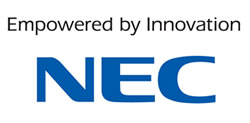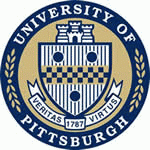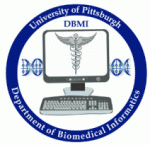Poster Presenters & Abstracts
Updated December 02, 2011- CLICK HERE for Rocky 2011 Program Book (.pdf). Posters start on page 47.
Listed in alphabetical order by presenter's last name:
P01: Identifying Novel Components of the Gravitropic Signal Transduction Pathway via Transcriptome Analysis
Presenter: Zachary Abrams, Ohio University
P02: Developing Maximum Likelihood and Bayesian Supertrees
Presenter: Wasiu Akanni, National University of Ireland, Maynooth
P03: Opportunities and Challenges Associated with Computational RNAseq Data Analysis
Presenter: David Astling, University of Colorado School of Medicine
P04: Jikitou a Question Answering System: The Next Stage in the Evolution of Information Retrieval
Presenter: Michael Bauer, University of Arkansas at Little Rock
P05: Phylogenetic Signal Dissection and the Phylogeny of the Ecdysozoa
Presenter: Lahcen Campbell, The National University of Ireland, Maynooth
P06: A Network-based Survival Predictor and its Application to Cytogenetically-normal Acute Myeloid Leukemia
Presenter: Yongkee Cho, Washington University in St. Louis
P07: CodingMotif: Exact Determination of Overrepresented Nucleotide Motifs in Coding Sequences
Presenter: Jeffrey Chuang, Boston College
P08: Testing the Ortholog Conjecture with Functional Data from Several Pairs of Closely Related Organisms
Presenter: Wyatt Clark, Indiana University
P09: Novel Information Theory Based Metrics for the Evaluation of GO Term Annotations
Presenter: Wyatt Clark, Indiana University
P10: Multiscale Patient-Specific Blood Systems Biology
Presenter: Scott Diamond, University of Pennsylvania
P11: Searching for Population Variation of Small Tandem Segmental Duplications using the 1000 Genomes Project Sequencing Data
Presenter: Michael Dickens, University of Colorado
P12: Gene Duplicability in the Mammalian Protein-protein Interaction Network
Presenter: Aoife Doherty, National University of Ireland, Maynooth
P13: Mixture Models vs. Supervised Learning Methods for Integrative Genomic Analysis
Presenter: Daniel Dvorkin, University of Colorado, Denver
P14: Inferring Protein Backbone Flexibility from Conformational Differences
Presenter: Elizabeth Eskow, University of Colorado Boulder
P15: Improving Automated Protein Function Prediction by integrating Natural Language Processing and Machine Learning
Presenter: Christopher Funk, University of Colorado
P16: A Sensemaking Model for the Explorative Analysis of Large Gene Lists
Presenter: Carsten Goerg, University of Colorado Denver
P17: Mathematical Modeling of Metastatic Growth in Lymphatic Vessels
Presenter: Ruth Griswold, Mount Sinai School of Medicine
P18: Consensus Network Inference Using Multiple Datasets to Elucidate Common and Chemical-specific Effects on Steoroidogenesis
Presenter: Tanwir Habib, US Army ERDC
P19: A Network-based Approach to Finding Fusion Genes
Presenter: Leanne Haggerty, The National University of Ireland, Maynooth
P20: Compact Encoding for Gene Therapy
Presenter: Roger Hall, University of Arkansas at Little Rock
P21: Diversification of Visual Receptors (opsin) Coincides with Major Environmental Factors such as the Cambrian Explosion and the Oxygenation of the Oceans
Presenter: Sinéad Hamilton, The National University of Ireland, Maynooth
P22: A Random Forest Model for Phosphorylation Site Localization using Mass Spectrometric Data
Presenter: Xin He, Indiana University Bloomington
P23: Characterizing the Phenotype of Beta-Blocker Responsiveness in CHF Patients
Presenter: Michael Hinterberg, University of Colorado-Denver
P24: CTCF can Form Unidirectional Regulatory Elements by Combining with Other Transcription Factors
Presenter: Chih-hao Hsu, NIH
P25: Metabolic Network Analysis of Apicomplexan Parasites to Identify Novel Drug Targets
Presenter: Stacy Hung, University of Toronto
P26: Improvement of Fold Recognition by Incorporating Bayesian Framework on Encoding Protein Fragments of Unknown Structures for Structure Alphabet-based Alignment
Presenter: Kenneth Hung, National Taiwan University
P27: The Role of p53 in Oligodendrocyte UPR
Presenter: Hasan Jamil, Wayne State University
P28: Extending the Value of Spectral Libraries: a Neighbor-based Approach to Predicting Intensities of Peptide Fragmentation Spectra
Presenter: Chao Ji, Indiana University, Bloomington
P29: DAVID-WS: A Stateful Web Service to Facilitate Gene/Protein List Analysis
Presenter: Xiaoli Jiao, NIH/NIAID
P30: Mobyle: A Web Based Frame-work for the Integration of Bioinformatics Software and Databanks
Presenter: Louis Jones, Institut Pasteur
P31: Discovery: A Resource for the Rational Selection of Drug Target Proteins and Leads for the Malaria Parasite, Plasmodium Falciparum
Presenter: Fourie Joubert, University of Pretoria
P32: Finding a Surrogate Metric of Cancer Antigen 125 with Thousand of Proteins
Presenter: Shintaro Kato, NEC Corporation
P33: An Information-theoretic Measure of TFBS Motif Palindromicity
Presenter: Alastair Kilpatrick, University of Edinburgh
P34: PathCMap: Development of Pathway Signature System for Identifying Druggable Partners of Synthetic Lethal Genes in Cancer
Presenter: Jihye Kim, University of Colorado Denver School of Medicine
P35: Automated Reaction Mapping for Isomers
Presenter: Tina Kouri, Colorado School of Mines
P36: A Data Integration Approach Reveals Species-specific Pharmacology Between Human and Rat Orthologs
Presenter: Felix Kruger, European Bioinformatics Institute
P37: Accurate Inferring Transcription Regulation from a Compendium of Expression Profiles
Presenter: Xueling Li, University of Texas, Medical Branch
P38: PhenoPred 2: Prediction of Gene-Disease Associations Based on Multiple Networks
Presenter: Biao Li, The Buck Institute for Research on Aging
P39: Exploring an Approximate Subgraph Matching Approach for Biomedical Event Extraction
Presenter: Haibin Liu, University of Colorado School of Medicine
P40: Cancelled
P41: A Physiological Pathway Portal Tool at the Rat Genome Database
Presenter: Weisong Liu, The Medical College of Wisconsin
P42: Evolution and Architecture of the Inner Membrane Complex in Asexual and Sexual Stages of the Malaria Parasite
Presenter: Noeleen Loughran, The Hospital for Sick Children
P43: Label and Edge Mismatch Graphlet Kernels for Functional Residue Prediction in Protein Structures
Presenter: Jose Lugo-Martinez, Indiana University
P44: Role of Pyruvate Dehydrogenase Kinases (PDKs) and Their Respective Micro RNAs in Human Ovarian Cancer
Presenter: Shaukat Malik, Mohammad Ali Jinnah University
P45: Analysis of Human Complex Disorders from the Systems Biology Perspective
Presenter: Natalia Maltsev
P46: GeneSmash: A RESTful Web Service for Gene Annotations
Presenter: Ganiraju Manyam, University of Texas Anderson Cancer Center
P47: TrAC: Transcriptome Analysis with Circos
Presenter: Aleksandra Markovets, University of Arkansas at Little Rock
P48: Predicting Transcription Factor Binding Sites with Hidden Markov Models by using ChIP-Seq data
Presenter: Anthony Mathelier, University of British Columbia
P49: A Comparative Analysis of Knowledge-Based Gene Prioritization Methods: Is the Supply Greater Than the Demand?
Presenter: Neel Mehta, Arizona State University
P50: Hierarchical Prediction of Enzyme Classes Using Ensemble Machine Learning Approaches
Presenter: Akram Mohammed, University of Nebraska Medical Center
P51: Inferring the Mammalian Phylogeny using a Heterogeneous Approach
Presenter: Claire Morgan, Dublin City University
P52: An Issue of Caution in the use of Mitochondrial Data to Infer the Mammalian Phylogeny
Presenter: Claire Morgan, Dublin City University
P53: Entropy-based Assessment of Condition-specific Histone Modifications
Presenter: Tadasu Nozaki, Keio University
P54: Prediction of Protein Function using Analysis of Interaction Maps Across Species
Presenter: Kymberleigh Pagel, Indiana University, Bloomington
P55: Deciphering of Human Protein Interactome using Structural Complexes
Presenter: Anna Panchenko, National Center for Biotechnology Information, Institutes of Health
P56: Regulation of Protein-Protein Binding by Phosphorylation and Oligomerization
Presenter: Anna Panchenko, National Center for Biotechnology Information, Institutes of Health, USA
P57: CysNO-DB: A Database of S-nitrosylation Sites
Presenter: Sanjit Pandey, University of Nebraska Medical Center
P58: A Database Framework for identifying Coding Sequence from NextGen mRNA Sequences
Presenter: Sanjit Pandey, University of Nebraska Medical Center
P59: ModPred: Predicting Post-translational Modification Sites from Protein Sequence
Presenter: Vikas Pejaver, Indiana University
P60: A Multiple-template Approach for Protein Threading
Presenter: Jian Peng, Toyota Technological Institute at Chicago
P61: A Tool for Assessment and Validation of Sequencing-Based Methods in Family Disease Studies
Presenter: Alexander Poole, University of Colorado Anschutz Medical Campus
P62: Alternative Splicing Detection Using RNAseq: An Assembly Approach
Presenter: Likit Preeyanon, Michigan State University
P63: In Silico Rational Drug Design and Modeling Studies of Novel Inhibitors for Multi-target Inhibition in Pseudomonas Aeruginosa
Presenter: Jayaraman Premkumar, Nanyang Technological University
P64: Quantitative Data: Where are they Hidden in Biomedical Literature?
Presenter: Komandur Ravikumar, University of Colorado School of Medicine
P65: Transcriptome Profile of Bovine Respiratory Disease Pathogen - Mannheimia Haemolytica PHL213
Presenter: Joseph Reddy, Mississippi State University
P66: SpacerSeeker: Detecting and Identifying Immunity Conferred by CRISPR Loci
Presenter: Zachary Romer, Loyola University Chicago
P67: MutDB: A Database for Assessing the Impact of Genetic Variants
Presenter: Tal Ronnen Oron, Buck Institute for Research on Aging
P68: Support for Larger Epistatic Modeling Using an OpenCL Implementation of Multifactor Dimensionality Reduction
Presenter: James Rudd, North Carolina Central University
P69: Identifying Treatment Relevant Colorectal Cancer Subtypes Using Iterative Non-negative Matrix Factorization
Presenter: Andreas Schlicker, Netherlands Cancer Institute
P70: A New Probabilistic Model in Predictive Microbiology (NPMPM)
Presenter: Nadine Schoene, Goethe University Frankfurt
P71: Simpsons Paradox and Correlation Cancellation in Genome-Wide Association Study Data
Presenter: Ronald Schuyler, University of Colorado Denver
P72: Predicting Chromosome Territories using Sequence Similarity
Presenter: Josiah Seaman, University of Colorado
P73: Functional Profiling of Pharmacogenetic Non-synonymous SNPs
Presenter: Chet Seligman, Buck Institute for Research on Aging
P74: Semi-supervised Learning Improves Gene Expression-based Prediction of Cancer Recurrence
Presenter: Mingguang Shi, Vanderbilt University
P75: Comprehensive Analysis of Associations Between Alternative Splicing and Histone Modifications
Presenter: Yuki Shindo, Keio University, Japan
P76: Developing a Decision Support System for Strategic Selection of Drug Targets to Combat Tropical Diseases
Presenter: Floriano Silva-jr, FIOCRUZ
P77: Concatabominations: A Character Recoding Strategy Implemented in the Safe Taxonomic Reduction Approach for Identifying Unstable Taxa
Presenter: Karen Siu-Ting Salvatierra, National University of Ireland Maynooth
P78: Investigation into Construction of MHC ligand Predictiors and Implications of Protocols used to Evaluate Them
Presenter: Werner Smidt, University of Pretoria
P79: Mining for Class-specific Motifs in Protein Sequence Classification
Presenter: Satish Srinivasan, University of Nebraska Medical Center
P80: Relationships Between Positioning of Synonymous Codon and Gene Translation Efficiency in Bacteria
Presenter: Satoshi Tamaki, Keio University
P81: The Rat Genome Curation:RGD Automated Data Integration Pipelines Maximize Coverage
Presenter: Marek Tutaj, Medical College of Wisconsin
P82: Using Transposable Elements to Understand Genomic Evolution
Presenter: Vijetha Vemulapalli, University of Colorado Denver
P83: Determining The Minimal Functional Elements in Protein Families
Presenter: Suleyman Vural, University of Nebraska
P84: Machine Approaches to Recognition of Trypanosomal Variant Surface Glycoprotein Sequences
Presenter: Jon Wilkes, Wellcome Trust Centre for Molecular Parasitology
P85: STOP and DEFOG: Web Applications for a Comprehensive Functional Gene Set Analysis
Presenter: Tobias Wittkop, Buck Institute for Research on Aging
P86: Building an Interactome to Identify Signaling Components
Presenter: Sarah Wyatt, Ohio University
P87: Post-translational Modifications Induce Significant yet not Extreme Changes to Protein Structure
Presenter: Fuxiao Xin, Indiana University Bloomington
P88: Co-evolution of SP1 and DNA Binding Sites
Presenter: Ken Yokoyama, University of Colorado Denver
P89: Coexpression of Linked Genes is not Explained by Similar Chromatin Environments
Presenter: Yiqiang Zhao, Buck institute
P90: What's New at EcoGene
Presenter: Jindan Zhou, University of Miami Miller School of Medicine
[TOP]
The next Rocky conference will be announced here soon.
9th Annual Rocky Mountain Bioinformatics Conference
|
ANNOUNCEMENTS: • Dec 01: The Rocky 2011 Program Book is now available (.pdf) • Nov 15: The Dec 08 banquet has sold out. To be placed on a wait list, please email This email address is being protected from spambots. You need JavaScript enabled to view it.. • MARC Travel Fellowship Application (.doc) - Deadline Nov. 04 •Download the Rocky 2011 Promotional Flyer (.pdf) |
|
SPONSORS: Platinum: |
Gold: |
|
Silver: |
|
|
Welcome to Rocky 2011!
Welcome to the ninth annual Rocky Mountain Bioinformatics Conference,
a meeting of the International Society for Computational Biology
(ISCB). The organizers hope that you enjoy the program, and find the
conference a productive opportunity to meet researchers, students and
industrial users of bioinformatics technology.

The
Rocky series began nine years ago as a regional conference, and has
grown into an international program with a spotlight on regional
development in the computational biosciences. The presenters of the
Rocky conference are scientists representing a broad spectrum of
universities, industrial enterprises, government laboratories, and
medical libraries from around the world. The meeting is a chance to get
to know your colleagues near and far, seek collaborative opportunities,
and find synergies that can drive our field forward.
We hope you enjoy the science, the company, and the spectacular scenery of the Rocky Mountains. Welcome!
Larry Hunter
Rocky 2011 Conference Chair
Rocky 2010 Comments
- 100% of the delegates found the conference met or exceeded their expectations
- 100% of the delegates found the conference was good value
- 90% of the delegates said they would attend again
- "This was my first time attending the meeting. I was very dubious about the 10 minute talks. I was completely wrong. The talks were great. The conference was very well organized."
- "Really, really enjoyed the keynotes this year - great mix, great speakers."
- "As always, wonderful meeting in a great location. It is an excellent mix of different areas of science and a great way to meet new people. See you next year too."
- "As a student who was originally trained in the biological sciences, it was simply delightful to meet many computational biologists, statisticians and computer scientists who are actively designing the tools on which I rely very heavily to do my work. I received good feedback, suggestions, and advice on how to move my current project forward. The suggestions on how to publish my data were also quite welcomed and I am most grateful. I look forward to attending the conference next year and hopefully doing so with novel data. Thank you."
- "This has been a great conference. I look forward to attending next year."
9th Annual Rocky Mountain Bioinformatics Conference
Registration
Updated December 01, 2011- Online registration - Online registration is now closed. Onsite registration will be available starting at 11:00 am on Thursday, December 8.
- Registration forms
(Note: The Dec 08 banquet has sold out. To be placed on a wait list, please email This email address is being protected from spambots. You need JavaScript enabled to view it.. )
|
PLAN AN ACADEMIC RETREAT! Earn a Suite Upgrade AND Free Food or Ski Lift Tickets PLUS one additional student registration at no charge with paid attendance of 10 or more from one school! Click HERE for details.
|
|
EARLY REGISTRATION: Prices valid through November 8, 2011
|
||
| Attendee Type |
ISCB Member | Non-member |
| Industry: | $460 | $680 |
| Academic/Government/ /Non-profit: |
$365 | $585 |
| Postdoc (with letter from Advisor): |
$220 | $380 |
| Students (with ID): | $185 | $285 |
|
|
||
|
||
|
|
||
| JOIN OR RENEW NOW AND SAVE! Non-members and those whose ISCB memberships have expired will be able to join ISCB through the online conference registration system and immediately receive the member discount for Rocky 2011. You can either join when you register for the conference or do so separately in advance here: www.iscb.org/iscb-membership. In order to qualify for the member discount, your ISCB membership must be paid in full. Those preferring to register at the non-member rate will immediately be offered a free 12-month ISCB membership with their higher fee. | ||
| REGULAR REGISTRATION: Prices valid starting November 9, 2011 |
||
| Attendee Type | ISCB Member | Non-member |
| Industry: | $535 | $755 |
| Academic/Government/ /Non-profit: |
$440 | $660 |
| Postdoc (with letter from Advisor): |
$295 | $455 |
| Students (with ID): | $260 | $360 |
|
|
||
|
||
|
|
||
| JOIN OR RENEW NOW AND SAVE! Non-members and those whose ISCB memberships have expired will be able to join ISCB through the online conference registration system and immediately receive the member discount for Rocky 2011. You can either join when you register for the conference or do so separately in advance here: www.iscb.org/iscb-membership. In order to qualify for the member discount, your ISCB membership must be paid in full. Those preferring to register at the non-member rate will immediately be offered a free 12-month ISCB membership with their higher fee. | ||
|
OTHER ITEMS:
|
|
| To-Go Lunches Lunch is not included in the conference registration fee, but optional to-go lunches can be ordered in advance of the conference (advance order only; cannot be ordered on-site). Pre-ordered to-go lunches will be available for pick up at Noon on Friday and Saturday outside the meeting room. Lunches are $20 each; order default quantity is one unless otherwise noted.
|
|
| SOLD OUT To be placed on a wait list, please email This email address is being protected from spambots. You need JavaScript enabled to view it.. Banquet Tickets (each) Thursday, December 8, 2011 Il Poggio Restaurant 7:00 pm - 9:00 pm This event typically sells out, tickets should be purchased in advance with registration. Tickets may not be available on-site. |
SOLD OUT $45 each |
| Discount Ski Lift Tickets - Radio frequency (RF) gate cards will be issued with all purchased lift tickets. Please note there is a refundable $5 per ticket fee for the RF card; refunds will be given at the Aspen Skiing Company ticket counters. Tickets purchased on-site at Aspen Skiing Company ticket counters are $100 per day (this is the non-group rate). Lift tickets purchased in advance at Rocky group rates are offered at the following non-refundable prices.
|
|
| Rocky Mountain Regional Bioinformatics Group Membership A $5 contribution to the Rocky Mountain Regional Bioinformatics Group (RMRBG) is gratefully accepted. If you choose, this contribution this will enroll you as a member of this group, and place you on the group mailing list for networking opportunities and announcements about future Rocky conferences. |
$5 |
|
|
|
|
Cancellation Policy: Request for registration cancellation must be made in writing and mailed to ISCB Registration Office, c/o Suzi Smith, 12127 Royal Lytham Row, San Diego, CA 92128, or sent via e-mail This email address is being protected from spambots. You need JavaScript enabled to view it., or faxed to +1-619-374-2890. All refunds will be processed following the conference. Refunds will be made in accordance with the following schedule: |
|
9th Annual Rocky Mountain Bioinformatics Conference
Key Dates
Updated Sept. 19 2011
| Early Abstract Submission Opens | August 2 |
| Registration Opens |
September 1
|
| Abstract Submission Deadline | October 7 |
| Acceptance Notification | November 2 |
| MARC Travel Fellowship Application Deadline | November 4 |
| Early Registration Deadline | November 8 |
| Housing Cut-Off Deadline | November 8 |
| Academic Retreat Sign-Up Deadline | November 8 |
| Rocky 2011 Conference Dates | December 8 - 10 |
9th Annual Rocky Mountain Bioinformatics Conference
Sponsors
Updated November 15, 2011
PLATINUM SPONSOR:
IBM’s Deep Computing organization is the high performance computing organization in IBM Systems and Technology Group. This group is responsible for the strategy, marketing and identification of areas that can benefit from IBM's high end technology. The life sciences is such an area, and IBM is and will continue to bring valued solutions to life sciences.
IBM's Research Division is a partner with IBM’s Deep Computing organization, developing the next generation of high performance computers. In addition, the Research Division has many groups investigating numerous application areas in collaboration with IBM's customers and partners. This includes IBM’s Computational Biology Center with IBM’s new Computational Science Center.
GOLD SPONSORS:
NEC Corporation (TSE: 6701) is one of the world's leading providers of Internet, broadband network and enterprise business solutions dedicated to meeting the specialized needs of its diverse and global base of customers.
NEC delivers tailored solutions in the key fields of computer, networking and electron devices, by integrating its technical strengths in IT and Networks, and by providing advanced semiconductor solutions through NEC Electronics Corporation. The NEC Group employs more than 140,000 people worldwide. For additional information, please visit the NEC home page at: www.nec.com.
- - - - - - - - - - - - - - - - - - - - - - - - - - - - - - - - - - - - - - - - - - - - - - - - - - - - - -

SomaLogic, Inc. is a privately-held biomarker discovery and clinical proteomics company based in Boulder, Colorado. The company's mission is to use its proprietary Slow-Offrate Modified Aptamer ("SOMAmer") technology to develop enhanced protein analysis tools and reagents for the life sciences community, to facilitate target validation, and to develop and commercialize clinical diagnostic products that will improve the delivery of healthcare by offering timely and accurate diagnostic information to physicians and their patients. Further information about SomaLogic can be found at www.somalogic.com.
SILVER SPONSOR:
![]()
Biodesix is a personalized medicine company focused on the development of diagnostic products that inform treatment decisions and improve patient care. The Company’s goal is to give physicians more information about the patient and their disease; understanding the clinically meaningful information contained within each patient's molecular profile leads to better care and better outcomes. The Company’s unique approach is based on ProTS®, proprietary technology which exploits the power of mass spectrometry and enables the discovery of specific molecular profiles. Biodesix collaborates with clinical investigators to address critical clinical questions, and partners with biotechnology and pharmaceutical companies to develop diagnostics to select patients most likely to benefit from novel therapies. For more information about Biodesix, please visit www.Biodesix.com.
Books as Student Prizes:
![]()
[TOP]








